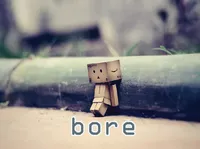
English vocabulary and phrases on Mid-Autumn Festival
bore means . Learn how to pronounce and use bore through vivid examples and easy-to-understand exercises.

Okay, let's break down how to pronounce "bore." There are actually two main pronunciations, depending on its usage!
Here's a helpful way to hear it:
Key takeaway: Both pronunciations are essentially the same. Pay attention to the context of the sentence to understand whether it’s being used as a verb or a noun.
Do you want me to:
Let's break down how to use the word "bore" in English. It's a surprisingly versatile word with multiple meanings! Here's a categorized breakdown with examples:
Important Nuances & Related Words:
Tips for Using “Bore” Correctly:
To help me give you even more tailored advice, could you tell me:
Which word best describes the feeling of finding something uninteresting?
a) bore
b) excite
c) distract
d) inspire
What does the word "bore" mean in this sentence: "The lecture seemed to bore the students"?
a) to excite
b) to irritate
c) to cause disinterest
d) to confuse
Which of the following sentences uses "bore" correctly?
a) The book was so fascinating; it bore me to tears.
b) The speaker’s monotone voice bore the audience.
c) She bore the news with great enthusiasm.
d) The drill bore a perfect hole in the metal.
Which word could replace "bore" in this sentence: "The repetitive tasks began to bore him"?
a) tire
b) annoy
c) inspire
d) engage
What is the primary meaning of "bore" in the sentence: "He used a tool to bore through the wood"?
a) to create a hole
b) to cause disinterest
c) to carry something
d) to irritate
Original: The presentation was so dull that the audience lost interest.
Rewrite:
Original: She drilled a hole in the wall to hang the painting.
Rewrite:
Original: The repetitive tasks made him feel uninterested.
Rewrite:
Exercise 1: Fill in the blanks
Exercise 2: Choose the correct answer
Exercise 3: Rewrite the sentences

English vocabulary and phrases on Mid-Autumn Festival

Tips to improve vocabulary in communication

English vocabulary by topic: Clothes

The secret to remembering all 50 English vocabulary words every day easily

English vocabulary by topic: Human body

Vocabulary of the most popular subjects in English

Learn English about Covid: All about vocabulary and disease prevention

Vocabulary of Subjects in English

Set of 60 English vocabulary on educational topics

Vocabulary - just a small thing!
Comment ()